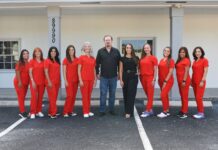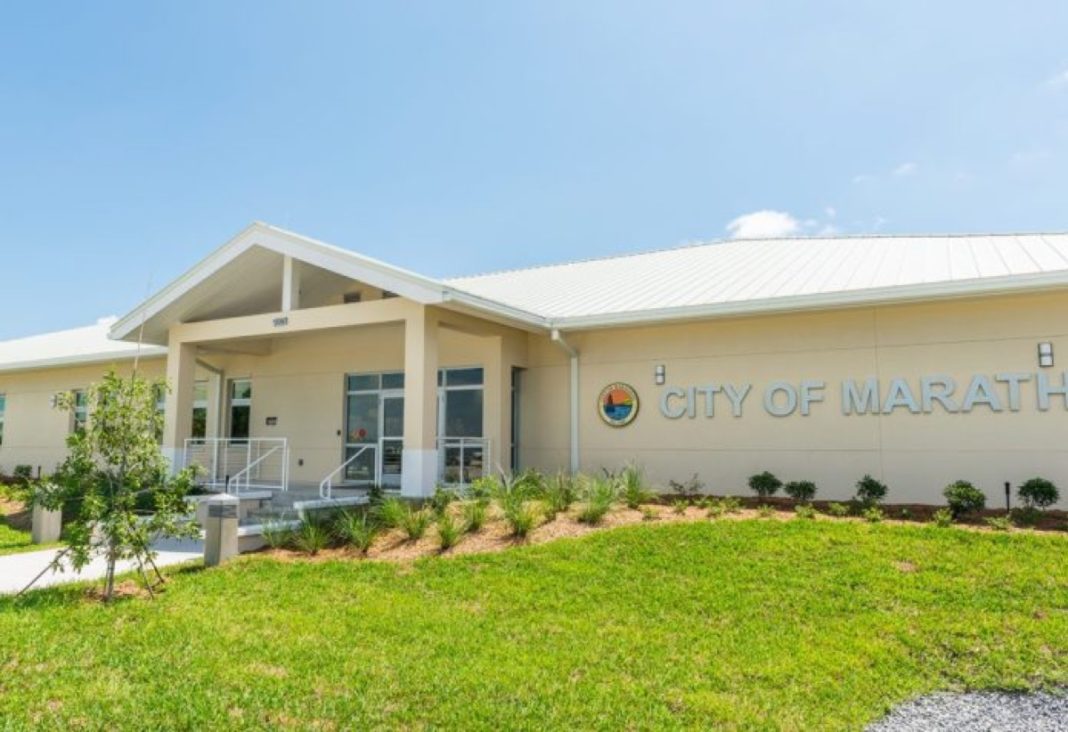Marathon councilmen Mark Senmartin and Steve Cook found themselves on the same side of an issue on Jan. 12. Neither wanted to replace the city’s current process that has a special magistrate overseeing code enforcement cases.
“Is the system broken right now?” Cook asked of City Manager George Garrett.
“No, it’s not,” said Garrett.
“Then, by all means, let’s not fix it,” said Cook.
But Councilmen John Bartus, Dan Zieg and Mayor Luis Gonzalez voted in favor of a hybrid model. It would still use the special magistrate, but would also re-form the code board — the same system Marathon used before hiring a special magistrate — with seven local members. Zieg proposed a trial period of one year.
“Between 80 and 90 percent of our cases are solved before they ever get to the magistrate,” said Zieg, “so kudos to our staff. The hybrid would be an answer to the requests of citizens who I have spoken to who want the code board.”
City attorney Steve Williams has been tasked with crafting the ordinance for a hybrid code enforcement model. The ordinance will outline how cases would be allocated between the two options; it’s likely to be the choice of the property owner in violation.
The council rejected a proposed trash law outright. As written, trash cans would not be allowed on the street until 6 p.m. the day before pickup, through the day designated for pickup.
“This is horrible, ridiculous,” said Senmartin of the law. “Talk about government overreach.”
The council has acknowledged that loose trash cans that overstay their welcome on the city’s right of way usually belong to vacation rental homes, specifically on Sombrero Beach Road. The challenge, Williams said, was writing a law to address that but, for legal reasons, has to encompass all homes, not just vacation rentals.
“I feel like I’m on a cooking show. I have to make lasagna without using noodles, tomato sauce or cheese,” Williams said. “I have to find a way to address the true source of the problem but by the same token I can’t use those words.”
The council did not adopt the ordinance and is going back to the drawing board. Senmartin suggested the cans be printed with addresses so the offenders can be cited by either the sheriff’s office (obstruction of a roadway) or code officers (property standards).
The council also rejected the low bid for an expansion of the City of Marathon’s park department building at Marathon Community Park. The bid for the 1,000-square-foot addition came in at $388,000 for extra office space and occasional use by children attending camp functions in inclement weather.
Public Works Director Carlos Solis said contractors are in high demand right now and building supplies are hard to get, likely the reason for the big price tag.
“This seems insane,” said Cook. “There has to be alternatives. I’m sure (the park department) needs it, they are desperate for space and a real office. But can’t we do something temporary to make it through the summer?”
The job will be put out to bid again.
In other news:
- The city rejected a bid from two homeowners on Grassy Key to manage a city-owned piece of conservation property adjacent to their home that they would fence for their own private use. Council directed staff to work with the homeowners to either buy the property for fair market value and deed restrict it as a conservation area, or assume management of the property but keep it open for public use.
- The City of Marathon will finish permits that are already under way on the old software and start new applications on the new software. The city is also identifying contractors who are willing to test the system before holding a class for the general public.
- The council heard a report about the state of Rotary Children’s Park, a joint project between the City of Marathon and Marathon’s Rotary Club. The club offered to provide volunteer labor if the city could provide some materials to replace aging equipment and structures. The city estimates it would cost about $225,000 to replace the equipment entirely, a capital improvement project that is already in the future budget.
- The city applied for a $3.3 million community block development grant to develop The Quay property for fixes to the seawall, adding restrooms, etc.
The city approved the RaceTrac gas station where Fairway Market is now. If the project proceeds according to plan, it will be open this time next year.























